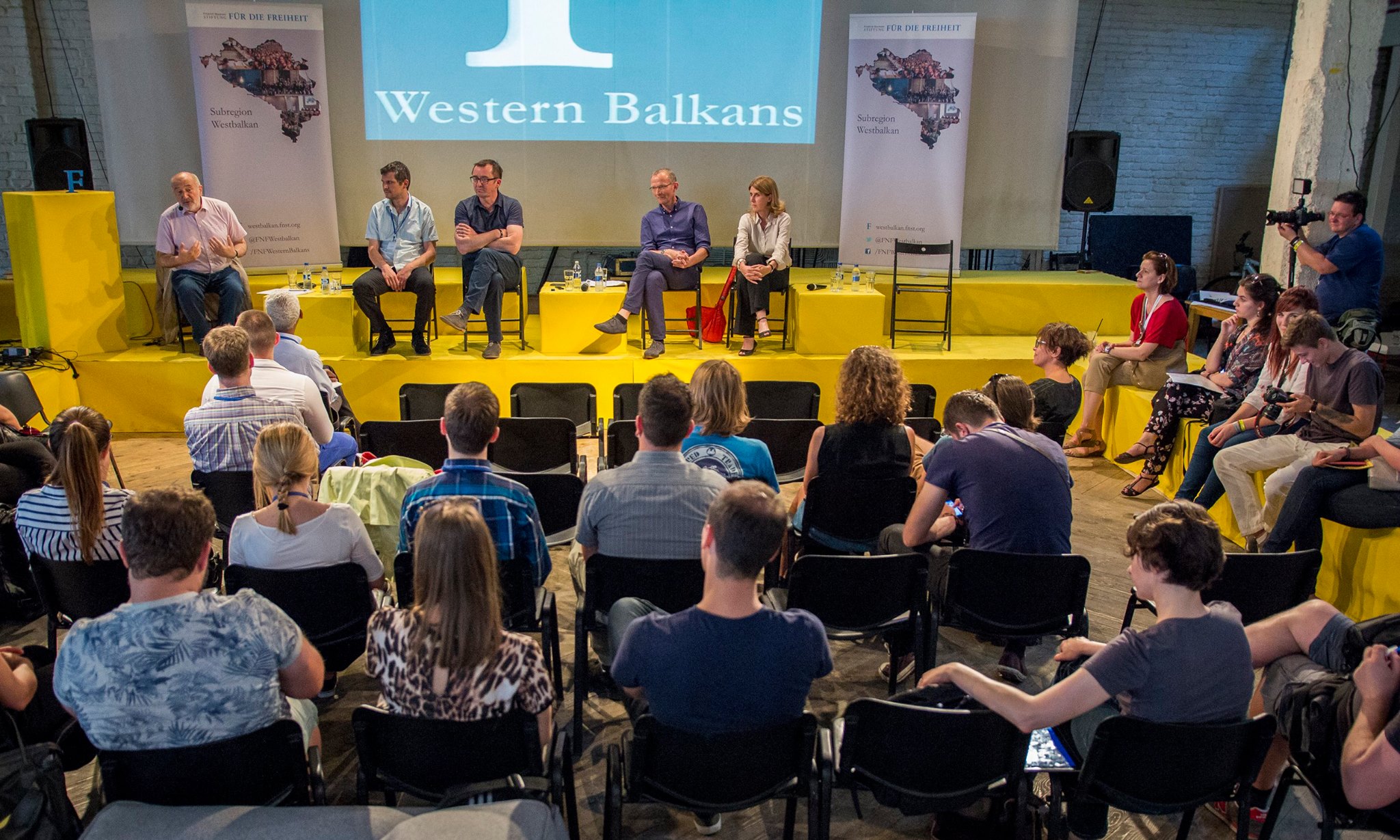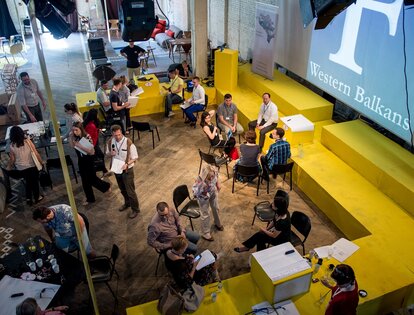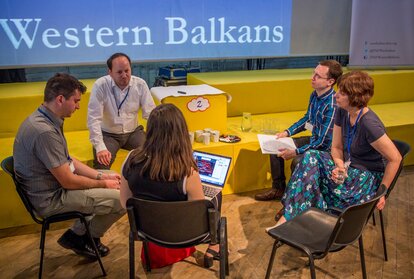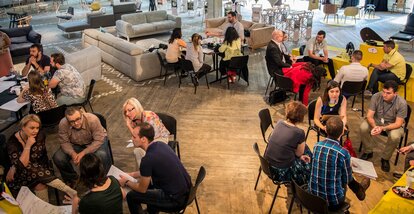Refugees and the Open Society

"We should not expect refugees to integrate but rather to participate" said Moavia Ahmad from Greece. Participation is a tricky word agreed Matthias Müller-Wieferig, Head of the German Cultural Institute "Goethe Institut". Müller-Wieferig is living already 5 years in Serbia, his Institute is especially dealing with a city quarter development called Savamala in Belgrade. According to him any open society must be as well a critical society which accommodates participation and find different approaches for groups.
The Regional Office of Friedrich Naumann Foundation for Freedom ("FNF"), together with Project Office of FNF Western Balkans, had organized a roundtable on "Refugees and the Open Society" within the framework of Mikser Festival - a gathering of civil society activists, artists and politicians from Serbia and far beyond.

At the FNF roundtable participants were discussing their visions for refugee’s integration and the future of the Western Balkans.
Panelists included Anne-Brigitte Krum-Hansen, UNHCR Serbia; Matthias Müller-Wieferig, Director of Goethe Institute Belgrade; Ivan Lalić, Director Mikser House; Jug Puljizevic, Croatian People's Party (HNs).
Jug Puljizevic from Croatian People's Party (HNs) takes the view that education is key in order to enable people to develop skills to become active on the labor market. Any open society needs active participation.
Ann-Brigitte Krum-Hansen from UNHCR pointed out that refugees are always looking for a better future and have very good reasons to leave their countries. Around sixty million people are possibly displaced so societies should be open but still not forget to work at the root causes of the whole problem. "Our future lies in multicultural societies". Serbia is at the crossroads from a transition country to an asylum country. Thus something has to be offered from these cities such as the message: your future could be here.

Ivan Lalic, Manager of Mikser House and the backbone of Miksaliste Integration Center for Refugees spoke up for two-way integration. According to him it is possible to educate and integrate into local communities. At the same time it is necessary to win the civil society for this project. And he recalled a recent example: "When we started building our refugee center right wing groups started protesting. After that we managed to convince local politicians and in the course of two weeks the protests ceased. Lalic is a visionary manager with a big heart: e.g. he thinks he could get more acceptance from the local population when the refugee center would offer free medical consultation and the organizers would be allowed to set up an Arabian restaurant. The FNF group of liberal stakeholders from six Balkan countries had a city tour in the eyes of refuguees and visited the Integration Center "Miksaliste".
An open society does not evolve over night. But a societal vision leaving borders behind and offering countless chances for all citizens is definitely the right answer towards fear mongering populists.

The panel discussion followed a WorldCafe session of participants from Romania, Bulgaria, Turkey, Greece, Serbia, Croatia and Bosnia. While the morning session was only open to liberal stakeholders, invited by FNF, the afternoon round table discussion proved to be very attractive and gathered many participants of the Mikser Festival. Around 50 people took part, a lot of questions were raised and it showed that Friedrich Naumann Foundation for Freedom had touched upon a very sensitive topic which perfectly matched the overall topic of the festival: "Sensitive Cities".
“The Refugees and Open Society“ will continue in the end of August with a new gathering of the liberal stakeholders in Belgrade. Stay tuned for more info soon.
The eighth Mikser Festival (8 – 12 June 2016) took place at more than 40 locations with the participation of some 1,000 creators. Under the slogan “Sensitive Society”,this year’s festival dealt with themes of gender equality and female creativity, social equality, open dialogue, multiculturalism, refugees and more efficient conflict resolution.
To get the feeling of the atmosphere of Mikser Festival, see the video below:
Find some photos from the event on FNF Western Balkans Facebook Page: